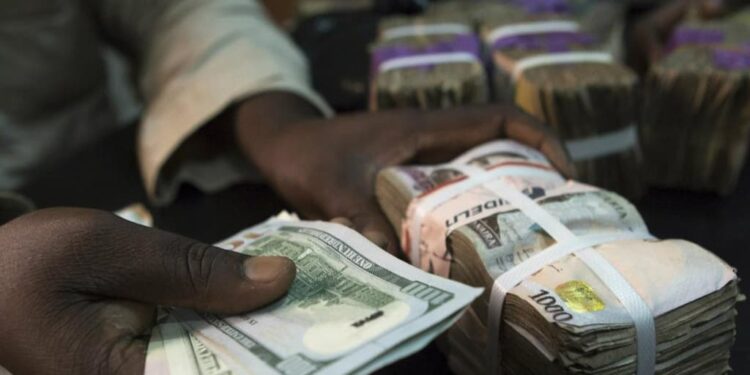The Central Bank of Nigeria’s (CBN) sale of US dollars to Bureaux De Change (BDCs) at a rate of ₦1,021 per dollar has sent ripples through the Nigerian financial landscape. This move, aimed at improving foreign exchange (FX) liquidity and stabilizing the naira, is a continuation of the apex bank’s efforts to manage currency volatility. Let’s delve deeper into this event, unpacking its implications for Nigerians and other naira users.
Fintech Telex recalls that the naira weakened from ₦1120 to the dollar in December 2023 to ₦1850 on the black market by February as some predicted a free fall. However, CBN intervention through market clearing and liquidity injections strengthened the Nigeria’s local currency.
Understanding the CBN Intervention
The CBN, as Nigeria’s monetary authority, plays a crucial role in managing the exchange rate between the naira and other currencies, primarily the US dollar. Foreign exchange is essential for various international transactions, including imports, travel allowances, and tuition fees. When there’s a shortage of dollars in the market, the price of the dollar goes up relative to the naira, making it more expensive for Nigerians to access these services.
By directly selling dollars to BDCs, the CBN aims to increase the supply of dollars in circulation. BDCs, also known as money changers, then sell these dollars to end-users at a slightly marked-up rate, typically with a maximum markup of 1.5% in this instance. This intervention is intended to achieve two key goals:
- Increased FX Availability: A higher supply of dollars in the market should lead to easier access to foreign exchange for individuals and businesses. This can be particularly beneficial for those seeking dollars for personal travel, medical bills, or educational expenses abroad.
- Exchange Rate Stability: The increased supply of dollars can help curb speculation and prevent the naira from depreciating further. A stable exchange rate fosters a more predictable business environment and protects the purchasing power of naira holders.
READ ALSO: What Dangote, Others Said about Late Wigwe
Impact on Nigerians and Naira Users
The CBN’s dollar sales can positively impact Nigerians and other naira users in several ways:
- More Affordable FX: With a potentially higher supply of dollars, BDCs may be able to offer dollars at a more competitive rate compared to situations with limited supply. This could translate to some cost savings for Nigerians seeking dollars for legitimate purposes.
- Improved Access to FX: Greater dollar availability in the BDC market should make it easier for individuals to obtain dollars, reducing reliance on unofficial channels that may offer less favorable rates or pose security risks.
- Potential Boost for Business: Businesses that rely on foreign exchange for imports or international transactions may benefit from a more stable exchange rate and potentially lower transaction costs.
Naira’s Recent Gains: A Result of CBN Intervention?
The recent sale of dollars by the CBN comes after a period of relative stability and even some appreciation for the naira. In late March, the naira was trading around ₦1,251 to the dollar. The CBN’s intervention through similar dollar sales at that time, coupled with other measures, likely contributed to this positive movement. While a single intervention may not be the sole reason, the CBN’s proactive approach to managing FX liquidity has demonstrably influenced the exchange rate.
Looking Forward
The CBN’s latest move is a positive step towards ensuring FX market stability and improving access to dollars for Nigerians. However, it’s important to maintain a sense of cautious optimism. Here’s why:
- Sustainability: The effectiveness of this intervention depends on the CBN’s ability to maintain a steady supply of dollars in the market. Factors like global oil prices and foreign investment inflows will influence the available dollar reserves.
- Speculation: While the CBN aims to curb speculation, it may not be entirely eliminated. Continued monitoring and adjustments to policy might be necessary.
- Structural Issues: Nigeria’s dependence on dollar-denominated imports can put pressure on the naira. Addressing this through promoting domestic production and exports could enhance long-term currency stability.
Upshot
The CBN’s sale of dollars to BDCs is a commendable effort to address FX market challenges. While its long-term impact remains to be seen, it has the potential to make accessing foreign exchange more affordable and accessible for Nigerians. By continuing to monitor the market and adapt its strategies, the CBN can work towards a more stable and predictable foreign exchange environment that benefits both individuals and businesses in Nigeria.










